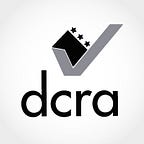DCRA’s Resident Inspector Program, One Year Later
Over one year ago, DCRA launched our Resident Inspector Program, an innovative approach that applies successful elements of the on-demand, gig economy to three of the most requested inspections performed by DCRA. DCRA trains District residents to perform housing, illegal construction, and vacant building inspections, and then pays the trained inspectors whenever they successfully complete an inspection.
Since the Resident Inspector Program’s launch in June 2019, its impact has been huge. As of September 2020, more than 170 individuals have become certified resident inspectors. More than one-third are women, which is significant in a field where women often face barriers of entry.
Perhaps the truest measure of the program’s success is the number of inspections that have taken place. Over the last year we’ve completed:
· 1137 property maintenance (housing) inspections
· 686 vacant building inspections
· 696 illegal construction inspections
“Mayor Bowser encourages District government agencies to find innovative ways to meet the needs of our residents. This program is an excellent example of how a mix of technology and creativity can yield impressive results,” said DCRA Director Ernest Chrappah. “With a growing population of more than 700,000, the need for inspections in the District continues to rise. This program is allowing us to scale our operations to meet the increasing demand.”
How does the Resident Inspector Program work?
After completing the application process and passing a background check, resident inspector candidates must complete a comprehensive training course and pass a series of exams, followed by field training. Once fully certified, resident inspectors are entered into an online platform created by the agency. Through the platform, inspectors are assigned jobs based on their availability and location. Once the inspector completes an inspection, their findings are uploaded from the field in real-time, and then approved by a supervisor.
The types of inspections performed by resident inspectors include housing inspections to ensure tenants are living in safe conditions, illegal construction inspections to ensure construction projects are following the city’s building code, and vacant building inspections to determine if an unoccupied building needs to be classified as such for tax purposes. Resident inspectors are paid $30 for each successfully completed vacant building inspection, $40 for housing inspections, and $20 for illegal construction inspections ($100 if it results in a Stop Work Order).
As a result of the program, DCRA has more than doubled its inspection capacity, allowing the agency to respond to inspection requests faster, sometimes almost instantaneously.
While the Resident Inspection Program is not a replacement for the agency’s team of full-time inspectors, it does allow the agency to meet the city’s growing demand and divert its full-time inspectors toward more complex cases.
